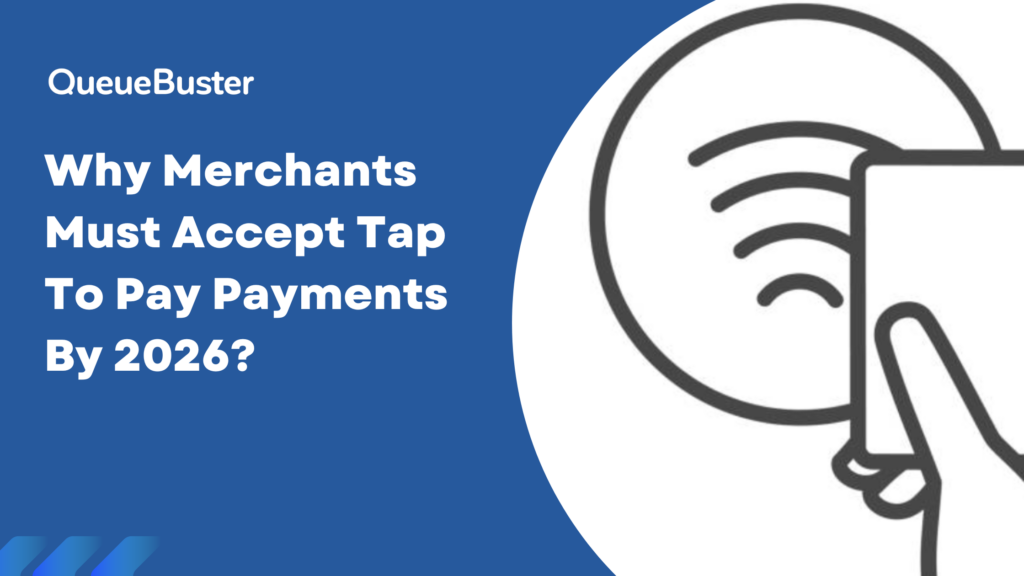7 Mistakes Merchants Make While Choosing a POS System
7 Mistakes Merchants Make While Choosing a POS System
By QueueBuster Team Published: May 11th, 2021
In your professional life as a retailer, you’ve spent countless hours and resources trying to generate sales. More sales lead to more revenue, in return for higher profits, which then leads to more opportunities for growth. But how do you keep track of everything you’re doing?
POS or point of sale system is next on the index.
One of the most important aspects of an efficient POS system is its ability to provide information about sales, inventory, customers, and employees, which allows businesses to operate more efficiently. However, many merchants have different options nowadays, it can be very difficult to find the right technology and software that will work for them. If you try too hard to find the right choice, you will most likely make a mistake — that will cost you money as well as time.
We at QueueBuster have compiled a key set of mistakes that merchants often make when choosing a POS system; here’s how to avoid them.
- Undefined needs
You need to make sure you know what features and functionality your business needs in its POS system, as this can make or break it when choosing the POS system. A pop-up store at a limited location might need help with purchasing and receiving while a Kirana store might want assistance with inventory management. A retailer must know which POS functions to incorporate into their business model.
The risk of skipping this stage could involve having to deal with conflicting or redundant elements in your system as well as the failure to deliver critical business functions.
2. Thinking Only of The Price
In the quest for cost-effectiveness, your POS system shouldn’t be sacrificing important features. Being smart with how you invest your money is good, but don’t cut corners when picking your POS.
Understand your requirements and recognize the need to invest in the appropriate solution for your business to run and grow. To avoid overspending, make a list of necessary features you require from your POS.
3. Prioritizing hardware investment
Different POS systems run on different hardware. For instance, if you’re a small retailer operating in a shared space or market you might only require a tablet or a mobile card reader.
Operating platforms vary according to POS software. The deployment of bulky hardware could be time-consuming, costly and the resources might interfere with the subsequent POS you buy.
4. Inadequate training
Although you have one of the most valuable resources in the business, managing it properly may still prove expensive in the long run, especially since many merchants economize on training their staff on new POS systems. Poorly trained employees will quickly render your POS less effective, regardless of how great a system you have.
Make sure they have a firsthand experience of the product, followed by systematic training. Teach them those details essential to manage the everyday business.
5. System not tested
In reality, a POS solution might look great on paper, but you won’t know the full picture until you try it out.
A free trial is an ideal way for you to test out their software. If that’s not possible, schedule a demo to walk you through the entire system, documenting any issues you find, and observe how helpful they are in responding to issues. It will give you an idea of what the system is capable of and what kind of technical support is available.
6. Ignoring the support system
It is more than probable that you are great at your business but you cannot consistently troubleshoot all your obstacles that might emerge — predominantly with your POS system.
If a problem arises, you don’t want to be left stranded. You have to make sure that you get access to a good technical support team when you purchase a Point of Sale system.
How Can Multi Store Outlets Retain Customers With CRM And POS Apps
7. An Unsuitable Partner
When you choose a POS system, you are entering into a long-term business relationship, and you want it to accommodate your business needs through thick and thin. It’s a tough choice to make, and you would like to partner with an organization dedicated to the specific industry.
By focusing on a few qualifying questions, it helps you eliminate some options.
- Are there any integration issues between the system and your organization?
- Do they provide ongoing support?
- How straightforward is the pricing?
- Is it designed to supervise crucial parameters important to the business?
Once you have compiled your pros and cons for your choices, you need to evaluate your options. If you’re able to avoid these mistakes, you’ll be well on your way to integrating one of the most valuable tools into your business that will set you up for success in the future.
For any further assistance on choosing the right POS system for your business, visit our website at https://queuebuster.co
Popular Posts

MEWA India 2026: Showcasing QueueBuster POS to the Global Dry Fruits Industry
MEWA India 2026 was not just another industry event for us, it […]

Why Merchants Must Accept Tap to Pay Payments by 2026
The way customers pay has changed rapidly over the last few years […]